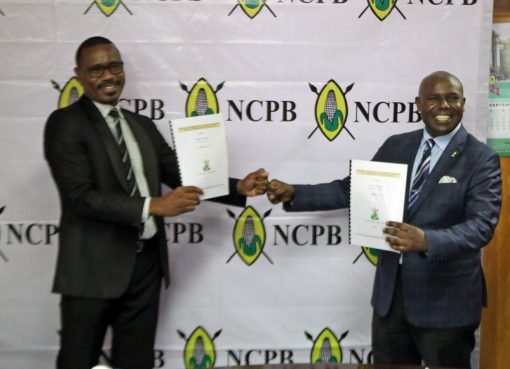World Bank through National government has given out a grant of Sh111.5 million to a Non-governmental organization (NGO) for the implementation of various agricultural activities in 20 wards of Homa Bay County.
As a commitment fee, the county government has given out Sh11.5 Million to the project to enhance ownership.
The implementing NGO dubbed National Agricultural and Rural Inclusive Growth Project (NARIGP) will oversee the implementation of the value chain which includes cotton growing, poultry keeping, banana tissue culture and Dairy farming within the county.
Addressing the stakeholders during a sensitization meeting held at hotel in Homa Bay town, Deputy Governor Hamilton Orata ordered that all the agricultural meetings should be held at the grass root not at hotels to enable more farmers to attend such forums.
Orata who was accompanied by County Executive Committee member (CECM) in charge of Agriculture Juma Aguka and Coordinator NARIGP Erick Adel further said that the county planned to revive the incubators that were given to the groups to promote poultry farming saying that the issue of electricity has been adequately addressed by Kenya Power Company.
He asked the Minister of Agriculture to ensure that the groups which were given the incubators bring them back stressing that a stun action would be taken upon those who will have sold the equipment.
The deputy governor further appealed to the residents to take the project seriously for it to have impact on their lives.
At the same time, Orata regretted that the county government was spending over Sh60 million to import eggs from Uganda, saying that the amount could have been used in doing development had it been that the county was able to produce enough eggs for its consumption.
The county boss further issued a stern warning to the County Executive Committee member in charge of Agriculture to take stock of all incubators and for those groups found to have sold theirs, action should be taken against them.
While addressing the same meeting, the County Executive Member Juma Aguko revealed that the program was going to fund groups directly by sending the grants into their bank accounts, adding that their mandate would only be monitoring on their progress.
Aguko said that in this programme, the smaller group would get a grant of between Sh5 to 10 million annually.
He assured the residents that the amount would be used prudently to benefit the groups and warned those people with the tendency of misappropriating public funds that they would not succeed with this project.
“The era when people could get away with government funds is long gone in the County,” Aguko reveals.
On his part, the project Coordinator Erick Adel appealed to the farmers to join hands and work closely to ensure that the project succeeded for their own benefit.
The project intends to reach out to 360, 000 farming households in 21 counties and cover 420 wards out of the existing 696 wards which was equivalent to 60 per cent coverage
By Rachel Achieng/Davis Langat
World Bank’s sh111 million funds agriculture



